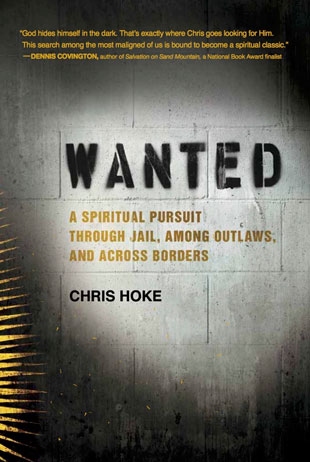"I'd met Ramon in the jail six years earlier. It was a night when I had invited the gathering of inmates to take a shot at Jesus's command to bless and pray for our enemies.
" 'How many of you have enemies?' I had asked the circle of men. Many men closed their eyes and snorted while raising scarred hands and arms. Men told stories of family members who had abused them, of gang rivals who had shot their friends and put them in hospitals, of old friends who had slept with their wives and stolen everything they'd had. Some said they were their own worst enemies.
" 'But no one forgives,' said a brawny biker-type with tattooed barrels for forearms as he threw his chin up. 'That's not how the world works.' He was right, I said. I knew, for a formal example, that forgiveness was never a legal option in a court of law; it is unauthorized and unrecognized as a course of action. I said true forgiveness was a way, then, to defy the world, to go against its rules entirely.
"Ramon stared at the concrete floor and said he wanted to forgive the man who'd killed his brother months earlier back home in Juarez. He also wanted to pray for the young woman whose false accusations of abduction and rape had landed him in there, where he currently faced thirty years in prison. Ramon, the short twenty-something with curly hair from a violent border town, was the only man who wept that night in the circle of condemned men as he forgave.
"The following week he tore into the large room where we meet, before all the other inmates, to tell me 'it worked!' I was confused; I hadn't expected any functional results to follow the act of forgiveness. But this was the first of many forgiveness miracles I witnessed in the jail. Ramon told me how the morning after forgiving and blessing his accuser, he received a call in the jail block from his lawyer: a handwritten letter from the young woman had appeared inside their office drop slot that morning, a full confession of her involvement at the party, her shame, and the reasons for her false testimony against several men who had seen her that night. The experience changed the direction of Ramon's life. He was free within weeks. He'd evaded the social dumpster.
"Over the next two years I saw him only intermittently. Then, one day, a maroon convertible Mustang roared up next to me at a stoplight, and I recognized the laughing young man with an outstretched arm hung over the wheel, three young women in the car with him, their hair flying around him in the summer air. He wore a bright gold chain around his neck. I called his name from my old Volvo sedan, but they could not hear me over the music. The next time I saw Ramon he was knocking on the back door of our ministry apartment late at night. I poured him coffee, but it sat cold next to him as he rubbed his brow and confessed many things. He disappeared for another year. When he returned, it was to move in for good.
"This was his short speech, like an aspiring monk at the monastery gate: 'I've got a house. I've got a job. I'm not homeless or a junkie or anything. I'm just tired of being an asshole and wasting my money on stupid shit. I want to move in here and learn, with you all, a new way to live.'
"Never in all my years growing up in American churches had I heard such a perfect summary repentance."
